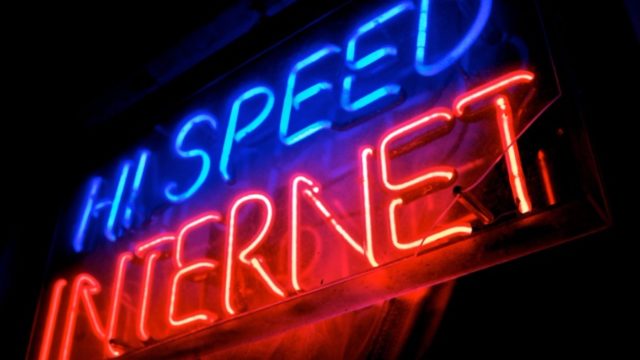
Is there are a difference between internet speed and internet bandwidth? Yes, there is. Internet bandwidth is the maximum amount of data that can pass through a network link in a given time and internet speed is the actual data that passes through. It gets affected by various physical and software-related factors.
ll this long, we have been using the terms bandwidth and speed interchangeably when talking about how fast is an internet connection. Did you ever think about the fact that the two of them could have differences, although, using one in place of the other doesn’t do any harm or confusion?What is the bandwidth of an Internet connection?
Internet bandwidth or network bandwidth is the maximum amount of data (measured in Kilobit, Megabit or even Gigabit) that can be transferred per second over a network link between two computers.
The actual meaning of the term bandwidth is entirely different than the one promoted for computer networks. Bandwidth finds its use in the field of signal processing where it denotes the difference (measured in Hertz) between the lowest and highest frequency in a continuous set of frequencies.Internet Bandwidth Vs Speed – Is bandwidth same as download speed?
Now, talking about internet speed or throughput, it’s nothing but a way to show the quickness of the data transfer. When doing normal things like web browsing or downloading a file, we could use speed and bandwidth in place of another.
However, there can be situations when you have a higher bandwidth, but your internet connection still works like a snail. Let’s say your ISP has allocated you a bandwidth of 50Mbps – means 50 megabytes of data can be downloaded in one second on your machine. You start downloading a file from a web server, and the download manager maxes out somewhere at 18 Mbps.
In this case, your actual bandwidth is 50 megabits per second, but the speed you’re getting is only 18 megabits per second. Your internet speed could be more or less than 18Mpbs, and it could even match the bandwidth if all things are right.
Varying internet speeds can be due to various factors. They can be physical, like the capacity of the infrastructure, the distance, the number of subscribers connected to the ISP, or it might depend on the type of protocol used for the connection. For instance, I have a 40 Mbps broadband, but I usually get around 25 Mbps due to the incapacity of the router and copper line the internet guys have installed.
A contribution is also made by the crappy DNS servers used by the Internet service provider, eventually slowing down the speed or the overall throughput of the connection at your end.
Connection latency can be one of the causes of low internet speeds. Latency is measured in milliseconds, and it’s the time taken for the data packets to reach from source to destination, hopping through different networks and routers.
You might have seen lags during live streaming and multiplayer gaming sessions even if your network bandwidth is tens of megabits per second, that’s because latency is too high.
In a nutshell
The difference between internet speed and bandwidth can be summed in one line: Internet bandwidth is about how much data can be download or uploaded from your computer, while internet speed is how fast can the data be uploaded or downloaded on your computer. Many ISPs allow different bandwidth limits for downloading and uploading. The upload bandwidth is less than the download bandwidth in most cases as most of the activities done by users require downloading of data from the internet.
Got something to add? Drop your thoughts and feedback.

0 comments:
Post a Comment